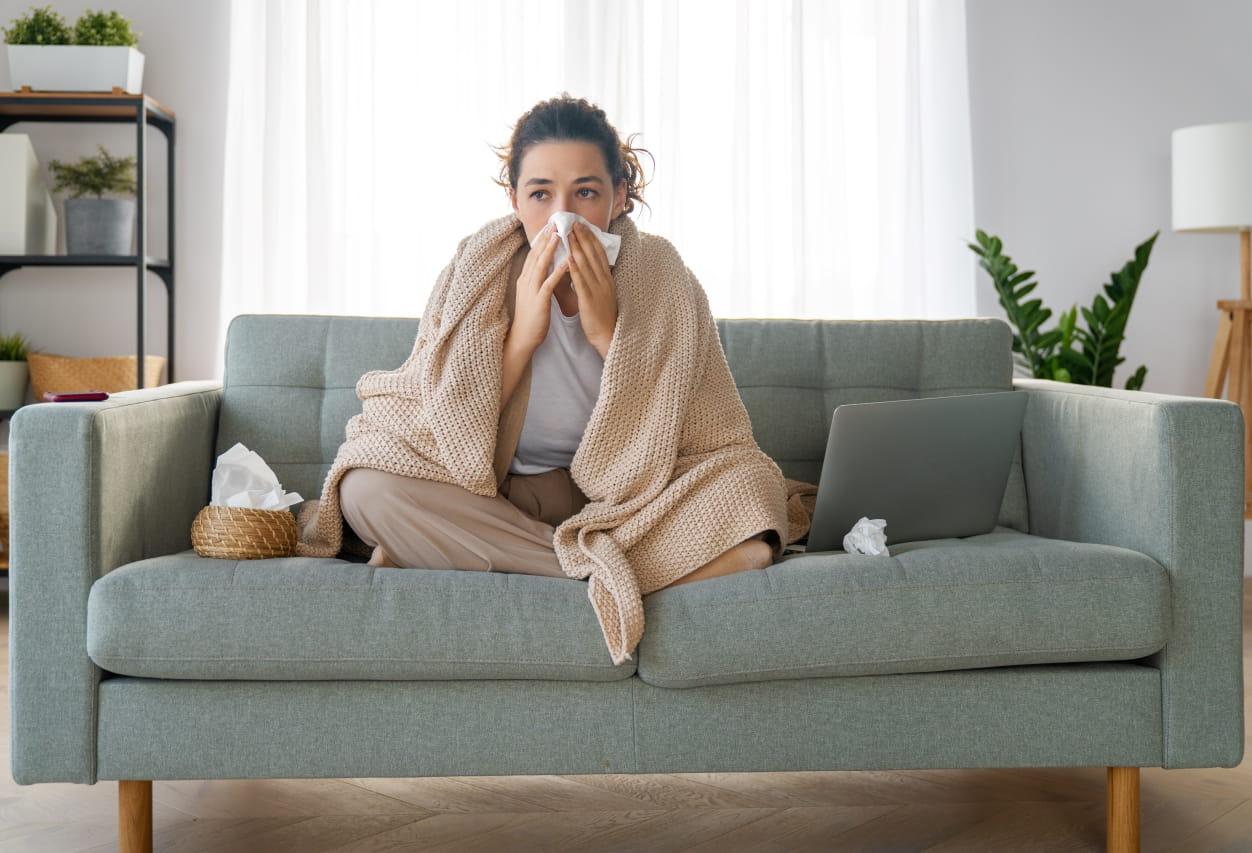How to Manage Spring Allergies

For many people, the beauty and sense of renewal that comes with spring is overshadowed by its effect on their allergies. While there’s no cure, there are things you can do to help keep allergy symptoms at bay. Below, we’ll outline the causes, symptoms, and steps you can take to enjoy spring without letting your allergies get in the way.
Allergy Causes and Triggers
The biggest allergy trigger by far is pollen. Tiny grains of pollen are released into the air by trees, flowers, grasses, and plants to fertilize other trees, flowers, grasses, and plants. When these pollen grains are inhaled by someone with allergies, they make the body’s defenses go haywire.
The immune system mistakenly sees the pollen as a danger and releases antibodies that attack the allergens, which leads to the release of histamines into the blood. It’s these histamines that trigger the runny nose, itchy eyes, and other symptoms that make life miserable for those with allergies. Making matters worse, pollen can travel for miles, so it’s not just the plants and trees in your neighborhood that trigger your allergies.
The trees most commonly associated with allergies in the U.S. include:
- Ash
- Birch
- Cypress
- Elm
- Hickory
- Maple
- Oak
- Poplar
- Sycamore
- Walnut
- Western red cedar
Grass pollens that release in the later spring include:
- Bermuda grass
- Bluegrass
- Orchard grass
- Redtop grass
- Sweet vernal grass
- Timothy grass
Never Miss a Beat
Get the health and wellness news that matters most delivered straight to your inbox. Subscribe to our free email newsletter to stay up-to-date on the latest news and more.
Symptoms of Spring Allergies
When trees and flowers start blooming, pollen releases into the air, and spring allergy sufferers begin to sniffle and sneeze. The most common symptoms are:
- Runny nose
- Watery eyes
- Sneezing
- Coughing
- Itchy eyes and nose
- Dark circles under the eyes
Allergens can also trigger asthma, a condition in which the airways narrow, making breathing difficult and leading to coughing, wheezing, and shortness of breath.
How to Manage Spring Allergies
While it’s nearly impossible to completely avoid spring allergies if you live near an abundance of trees, flowers, grasses, and plants, you can help lessen the symptoms by avoiding some of the main triggers. Here are some things you can do:
- Try to stay indoors whenever the pollen count is very high, which tends to be higher in the morning.
- Keep your doors and windows closed whenever possible to keep allergens out.
- Use an air purifier.
- Clean the air conditioner filters often.
- Clean surfaces, vents, and other places where pollen can collect.
- Vacuum twice a week. Be sure to wear a mask as vacuuming can kick up pollen mold and dust trapped in your carpet.
Treatment for Spring Allergies
You can treat spring allergies with several over-the-counter medications, including:
- Antihistamines. Antihistamines reduce sneezing, sniffling, and itching by lowering the amount of histamine (the substance that’s produced during an allergic reaction) in your body.
- Decongestants. These clear mucus from your nasal passages to relieve congestion and swelling.
- Antihistamine/decongestants. These combine the effects of the two medications above.
- Nasal spray decongestants. These relieve congestion and may clear nasal passages faster than oral decongestants.
- Steroid nasal sprays. These reduce inflammation.
- Cromolyn sodium nasal spray. This can help prevent hay fever by stopping the release of histamine before it can trigger allergy symptoms.
- Eye drops. These can help relieve itchy, watery eyes.
If Over-The-Counter Remedies Aren’t Working, See Your Doctor
If avoiding allergens and taking over-the-counter medications isn’t enough to ease your symptoms, you should probably see your doctor. Your doctor may recommend that you have skin or blood tests to find out exactly what’s triggering your symptoms.
For some, allergy shots (allergen immunotherapy) can be a good option. Also known as desensitization, this treatment involves regular injections of tiny amounts of the substances that cause your allergies. Over time, these injections reduce the immune system reaction that causes symptoms. For some allergies, treatment can be given as tablets under the tongue.
If your allergies are causing symptoms that are becoming too much to handle, visit a Baptist Health Urgent Care or take advantage of Baptist Health Virtual Care.
You can find a provider near you using our online provider directory.
Next Steps and Useful Resources
Find a Provider
Are Allergies Genetic?
5 Tips to Survive a Terrible Allergy Season
Allergies vs. Colds: What’s the Difference?



